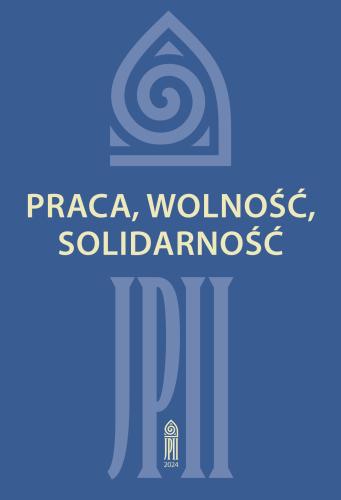Some thoughts on the individual and social dimensions of human toil in Karol Wojtyla’s poem entitled “The Quarry”
Synopsis
This chapter analyzes Karol Wojtyła’s poem “The Quarry”, written in 1956 and deeply rooted in the poet’s own wartime experience as a laborer. The text is interpreted as both a literary and philosophical meditation foretelling later social milestones, including the birth of the Solidarity movement in 1980 and the papal encyclical “Laborem Exercens” (1981). Drawing connections to Norwid’s “Promethidion,” the analysis highlights themes of work as a vocation encompassing creative, spiritual, and ethical aspects, which are inseparable from community. Through metaphors and dialogic structure, the poem explores how human toil is not merely physical or economic but also a profound act of self-realization, responsibility, and solidarity. Wojtyła’s poetry resists materialistic and utilitarian models of labor prevalent in the era of socialist realism, instead affirming work as a manifestation of dignity, love, and truth—qualities forged amid hardship, loss, and shared experience. The communal dimension of work emerges in the relationship between worker, family, and collective memory, ultimately embedding human endeavor within the moral and spiritual order symbolized by Christian tradition. “Kamieniołom” thus anticipates Wojtyła’s later ethic of labor and solidarity—a call to recognize the inner value of work, the creative potential of the individual, and the enduring strength of community.



